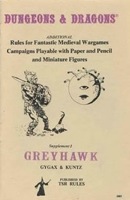Difference between revisions of "Supplement"
m (Text replacement - "http://nordan.daynal.org" to "https://nordan.daynal.org") |
|||
| Line 2: | Line 2: | ||
==Etymology== | ==Etymology== | ||
| − | [ | + | [https://nordan.daynal.org/wiki/index.php?title=English#ca._1100-1500_.09THE_MIDDLE_ENGLISH_PERIOD Middle English], from [[Latin]] supplementum, from supplēre to fill up, complete |
*Date: [http://www.wikipedia.org/wiki/14th_Century 14th century] | *Date: [http://www.wikipedia.org/wiki/14th_Century 14th century] | ||
Revision as of 22:47, 12 December 2020
Etymology
Middle English, from Latin supplementum, from supplēre to fill up, complete
- Date: 14th century
Definitions
- 1 a : something that completes or makes an addition The action of supplying what is wanting; the making good of a deficiency or shortcoming.
- b : dietary supplement
- 2 : a part added to or issued as a continuation of a book or periodical to correct errors or make additions
- 3 : an angle or arc that when added to a given angle or arc equals 180°
Description
A supplement is a publication that has a role secondary to that of another preceding or concurrent publication.
A follow-on publication complements its predecessor, either by bringing it up-to-date (e.g. the Index Catalogue), or by otherwise enhancing the predecessor's coverage of a particular topic or subject matter, as in the Tosefta. Supplements are particularly popular and useful in gaming hobbies.
A newspaper supplement, often a weekly section of its parent, usually has a tabloid or magazine format and covers wide-ranging and less time-critical subjects, as in The American Weekly, the 2004 version of Life, and Parade; newspaper supplements became common in France and Germany in the mid to late 19th century--they were called feuillton in French. In Chinese, they are called fukan.
